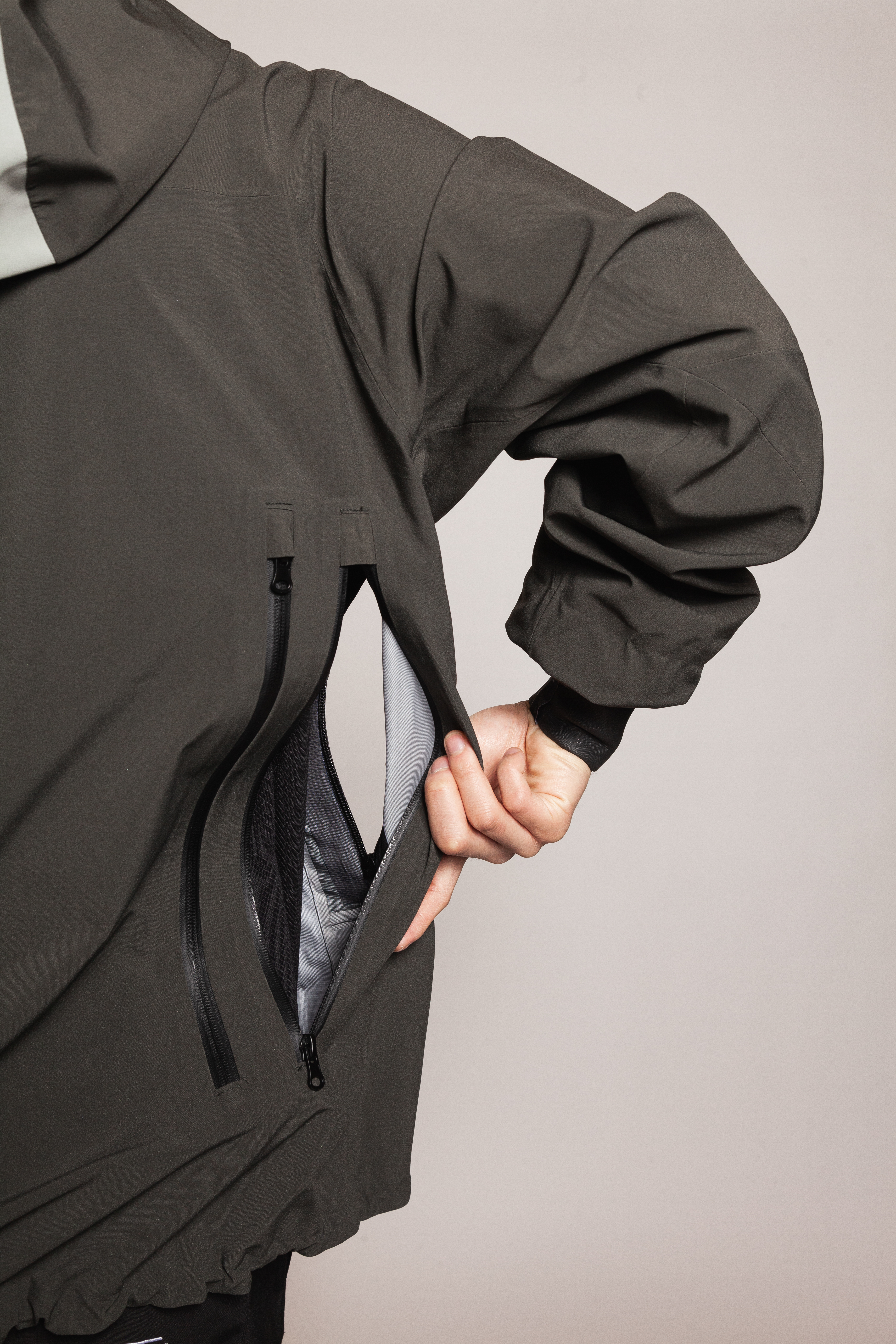
From personal flotation devices to paraclimbing pants for outdoor enthusiasts with spinal cord injuries, students graduating from the Technical Apparel Design program at the Wilson School of Design at Kwantlen Polytechnic University have created designs with purpose.
Hanae Yaskawa is from the heart of Silicon Valley and studied Physics and Italian Studies at Wellesley College in Boston. After working at a food and tech start-up, she joined the Technical Apparel Design program at the Wilson School of Design.
For her capstone project, Hanae has designed outdoor paraclimbing pants for climbers with spinal cord injuries. Called “Resilience Climbing Pants”, Yaskawa says the name is a nod to the abrasion-resistant quality, as well as a recognition of the resilient spirit of athletes who find creative ways to navigate a world that is not designed for them.
“I was inspired by athletes who train and perform with the added challenge of living with a disability,” she says.
“Through chats with para-athletes, coaches, and sports organization representatives, I discovered many apparel challenges. I chose this project because the apparel solution could not only allow paraclimbers to climb more freely and for longer, but also allow more people living with spinal cord injuries to start engaging in the sport.”
Mechanical engineer Joel Maerz designed the “Chinuuk”, a weatherproof, alpine-capable pack built from a repurposed waterproof shell.

“Simply put, waterproof breathable shells are not recyclable. The inspiration for my design comes from just asking the question "okay, but what can we do about it?",” says Maerz.
Originally from Calgary, Maerz now works for the development team at Vancouver-based Stoko Design Inc. and says he is exactly where he wants to be - designing supportive apparel.
Other project designs include:
- Support device for yoga and meditation
- Flexible and breathable body protection for boxing
- Inflatable vest for deep water soloing (climbing)
- A personal floatation device for rowers
The post-baccalaureate students take 3 – 4 months working on the projects, from brainstorming to creating prototypes. They also work directly with local industry including Arc’teryx and Mustang on their capstone projects.
Unlike past years, when the public was invited to view the designs and meet the designers, this year the graduation and showcase took place online.
"Year after year, the students from the Technical Apparel Design program leave us in awe of their innovative design solutions for the performance issues they address. Congratulations to the graduating class,” says Andhra Goundrey, dean, Wilson School of Design.
Learn more about the designs and designers.